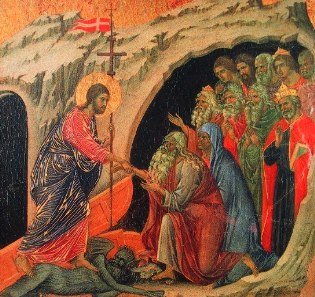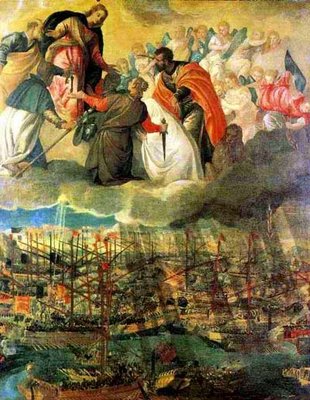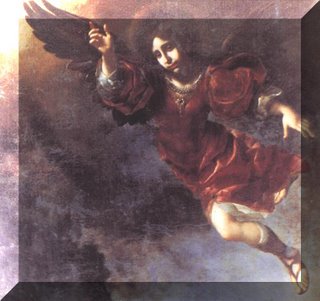
Painting, "Elizabeth II"
A few days ago I commented on Mrs. Bogle's blog, with sincere questions, hoping to get a response in answer to my questions. (She could have told me to read a book on history.) Without ever insulting my intelligence, she very graciously and succinctly explained why the monarchy is valued in Britain. Thank you Mrs. Bogle! I copied and pasted her friendly response:
said...
Well, here goes....I'm terribly sorry that you were offended that I didn't publish your comments or reply to you....but the system of comments on my blog doesn't provide for my being able to send you a direct personal reply. I had to track down your blog via Google, so here I am!!
I have made clear on my blog that I honestly can't get involved in lengthy discussions except on specific issues largely related to Catholicism.....The blog's essentially a diary with Catholicism as its chief ideolgical component rather than any political issues. I like to steer the thing along those lines, and don't want to get side-tracked into debates with Americans - however delightful and friendly! - who quite obviously will have a different approach on Monarchy and our Royal Family.
However, for what it's worth, my comment goes like this:
America is a great and splendid nation, and one which has proved a blessing to many. It's a joyful place to visit, too - there is a sense of purpose and of welcome which lifts the heart. But it certainly has its own version of an hereditary tradition within its political system: please don't try to say that the Bushes and the Kennedys and so on don't have hereditary power! The difference is just that: there is real power wielded by great families, rather as Britain had in its days of imperial authority. George Washington imposed his family's coat of arms as the nation's flag - no harm in that, and the flag has stood for prosperity and a decent way of life for millions, including those who arrived poor and hungry fleeing from real oppression and injustice.
In Britain, we have found - not without some travail, including a bitter civil war between monarchists and their opponents - that a Monarchy and Parliamentary democracy work extremely well. We have adapted to massive social change without the struggles that this entailed in America (the "civil rights" movement, etc) and the sense of community and family that is engendered by our monarchy and its associated heritage has served us admirably. We look with pity on those European nations - France as perhaps the supreme example, currently in its 5th Republic with probably more to follow - that lack the blessings of stability bestowed on us.
We don't specially expect Americans to value our monarchy as we do, and we recognise the value of their own tradition: there are many among us who despise and reject the crude anti-Americanism that frequently sweeps Europe, and we are not unmindful of the poignant graves of young American soldiers and airmen who lie with honour in our Cambridgeshire countryside, and of the sacrifice of life they gave with generous hearts in a war that preserved our freedom.
When we speak our Queen, we don't, actually, mostly think in soap-opera terms - which is why we have been distressed by Royal events of recent years - but of the ideal of nationhood embodied in an anointed monarch consecrated to public service in a tradition stretching back through millenia. It's not an absurd idea, and we think it carries a quiet resonance at least as noble as anything that a larger republic can offer. What is likely to destroy it, tragically, is the loss of our nation's Christian identity: we admire Americans for their stalwart adherence to a Faith that many in Britain now denounce or deny.
God Bless America!
And, in this small island with a large history: God save the Queen!
With warmest good wishes
Joanna Bogle
I'm such a brat, having coerced a response from this wonderful woman. Yet I'm delighted and impressed to have heard from her...and just a tad embarrassed that I betrayed my lack of intelligence regarding Monarchy.
From now on, when you may disagree with me, maybe take a lesson from Joanna Bogle on civility when commenting.
I
like the Bogle's!












